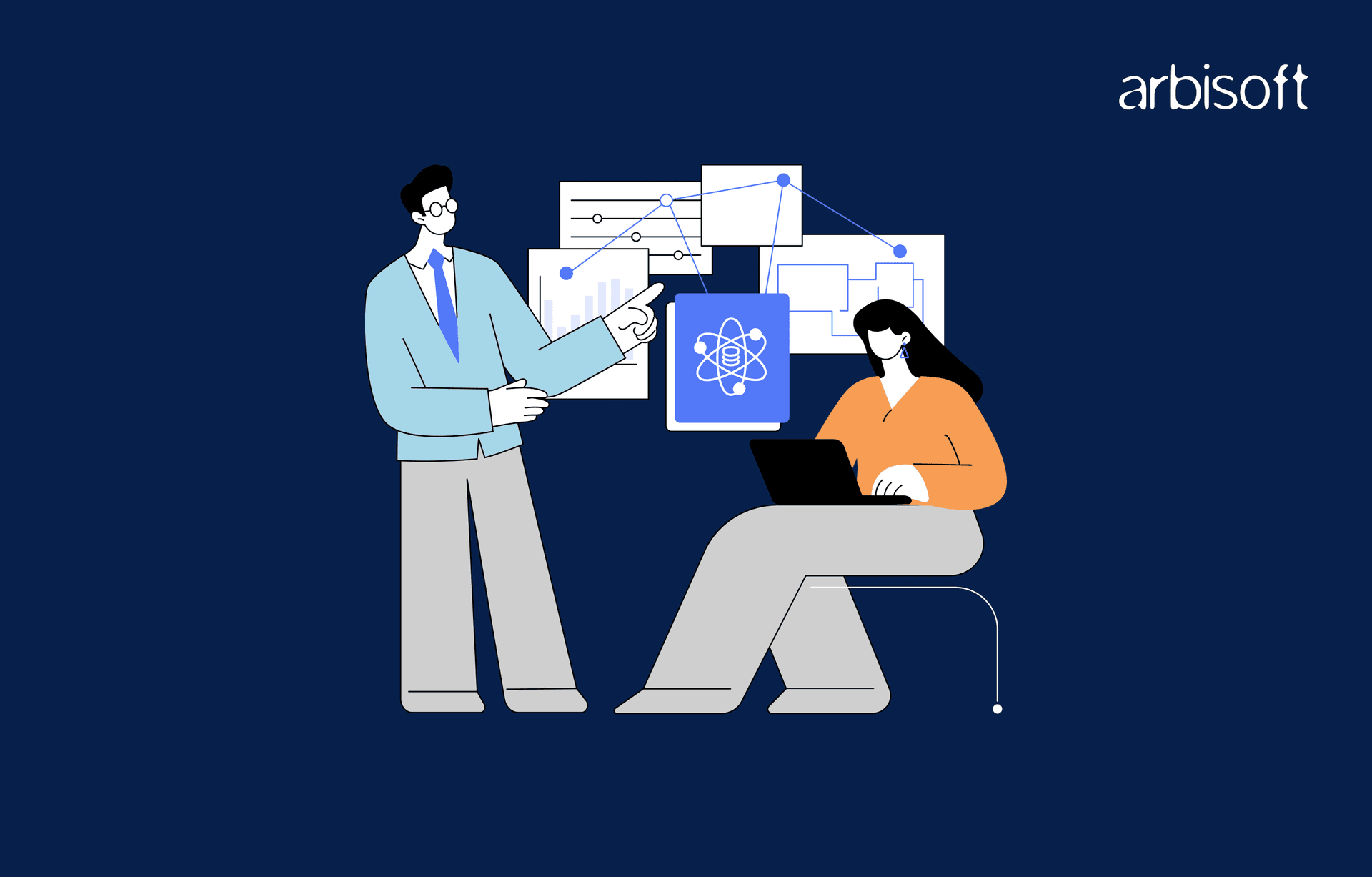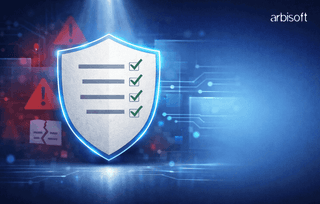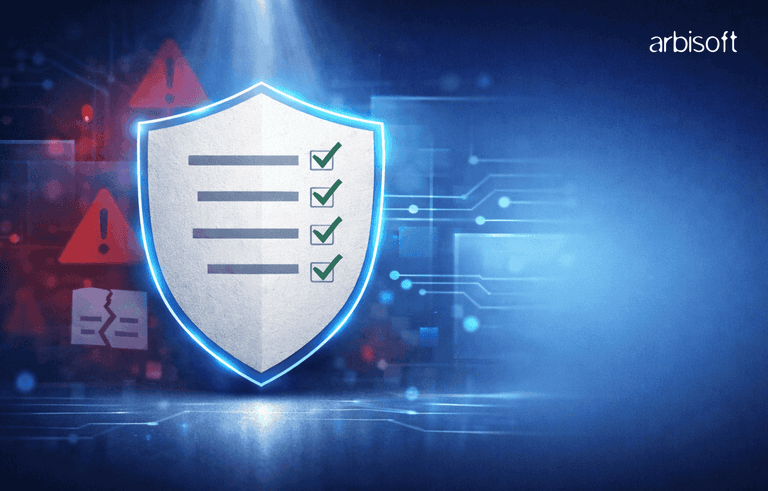We put excellence, value and quality above all - and it shows




A Technology Partnership That Goes Beyond Code

“Arbisoft has been my most trusted technology partner for now over 15 years. Arbisoft has very unique methods of recruiting and training, and the results demonstrate that. They have great teams, great positive attitudes and great communication.”
Everything You Need to Know About Quantum Machine Learning (QML)

Quantum Machine Learning (QML) is an exciting new field that combines quantum computing and machine learning. It has the potential to transform how we process data and solve complex problems.
Today, traditional computers struggle with huge amounts of data and intricate calculations needed for advancements in areas like drug discovery, climate modeling, and financial analysis. QML offers a solution by using the unique abilities of quantum computers to handle these tasks much faster and more efficiently.
For instance, quantum computers leveraging advancements like the Google Willow quantum chip can process information millions of times faster than classical computers, potentially reducing computation times from years to seconds.
In this blog, we'll break down the basics of QML, why it's important, its applications, and the challenges it faces. By the end, you'll see why QML could be a game-changer for the future.
What is Quantum Machine Learning?
Quantum Machine Learning combines the principles of quantum computing with classical machine learning. Quantum computing uses the principles of quantum mechanics, like superposition and entanglement, to perform calculations much faster than traditional computers. Machine learning involves algorithms that enable computers to learn from and make decisions based on data. QML leverages the power of quantum computers to enhance machine learning tasks.
Want to get started with QML but don't know where to begin?

Our guide will walk you through the essentials of getting started with QML.
Get your free guide!

Why is QML Important?
QML is significant because it can potentially solve problems currently too complex for classical computers, offering benefits such as:

How Does Quantum Machine Learning Work?
Quantum Machine Learning combines quantum computing with machine learning techniques to leverage the unique advantages of quantum mechanics. QML utilizes quantum bits, or qubits, which can exist in multiple states simultaneously thanks to the principles of superposition and entanglement.
Here’s a complete breakdown of how QML works:
1. Data Encoding
- Quantum Feature Mapping: Classical data is encoded into a quantum state. This step is crucial because it prepares the data for processing by quantum algorithms. Common encoding techniques include:
- Amplitude Encoding: Data is encoded into the amplitudes of quantum states, allowing a large amount of data to be represented by the quantum state of a few qubits.
- Basis Encoding: Binary data is mapped directly onto the computational basis states of qubits, such as |0⟩ and |1⟩.
- Density Matrix Encoding: Probabilistic classical data is represented using quantum density matrices, which are suitable for scenarios where data is inherently probabilistic.
2. Quantum Processing
- Quantum algorithms process the encoded data, leveraging quantum properties to perform computations that are infeasible for classical computers. Key algorithms and techniques include:
- Quantum Fourier Transform (QFT): This is used for signal processing, solving systems of linear equations, and is a crucial component of many quantum algorithms.
- Grover's Algorithm: Provides a quadratic speedup for unstructured search problems, which can be used to speed up database search and combinatorial optimization tasks.
- Variational Quantum Eigensolver (VQE): Used for finding the minimum eigenvalue of a Hamiltonian, which is particularly useful in quantum chemistry and materials science.
- Quantum Approximate Optimization Algorithm (QAOA): Solves combinatorial optimization problems by finding approximate solutions to complex optimization tasks.
- Quantum Neural Networks (QNNs): Quantum analogs of classical neural networks that utilize quantum gates to perform learning tasks more efficiently.
3. Hybrid Quantum-Classical Processing
Many QML algorithms operate in a hybrid quantum-classical mode, where classical computers handle certain parts of the machine learning process (such as data preprocessing, parameter updates, and post-processing of results), while quantum computers are used for the computationally intensive parts. This hybrid approach maximizes the current capabilities of quantum hardware while leveraging classical computing strengths.
4. Measurement
After quantum processing, the quantum state is measured. Measurement collapses the qubits' superposition into a definite state, converting the quantum information back into classical data. This classical data is then used for further analysis or decision-making. The outcome of the measurement provides the result of the quantum computation, which may be a probability distribution or specific data points depending on the algorithm used.
Applications of Quantum Machine Learning
1. Drug Personalization
Quantum Machine Learning can be leveraged to tailor drug treatments to individual patients by analyzing genetic information and predicting responses to various drugs, which can lead to more effective and personalized medicine.
2. Quantum-enhanced Robotics
QML can improve robotic systems by enabling more sophisticated algorithms for real-time decision-making and pattern recognition, leading to advancements in autonomous vehicles, manufacturing, and complex assembly tasks.
3. Quantum-enhanced Security
QML can enhance cybersecurity by improving encryption methods and detecting anomalies in network traffic, thus providing stronger protection against cyber threats and attacks.
Challenges of QML
Here are some of the key challenges faced in QML
1. Quantum Hardware Limitations
- Qubit Quality and Quantity: Current quantum computers can only manage a limited number of qubits. We need more qubits to solve more complex problems, but it's tough to increase qubits while keeping them stable and error-free.
- Decoherence and Noise: Quantum systems are very sensitive to their surroundings, which can cause errors due to decoherence and noise. These issues can mess up quantum computations and need advanced error correction methods to fix.
2. Error Correction
- Quantum Error Correction Codes: Developing good quantum error correction codes is crucial for reliable quantum computing, just as businesses depend on automation testing services to ensure robust software quality.
- Fault-Tolerant Computation: Making fault-tolerant quantum computation involves detecting and correcting errors without disrupting the overall computation. This area needs significant advancements in both hardware and algorithms.
3. Algorithm Development
- Scalability of Quantum Algorithms: Many quantum algorithms are still theoretical and need to be scaled up for practical use. Researchers are working on making these algorithms more efficient and applicable to real-world problems.
- Integration with Classical Systems: Developing effective hybrid quantum-classical algorithms that work well with classical systems is essential. This involves creating algorithms that use both quantum and classical resources efficiently.
4. Resource Requirements
- Quantum Resources: Implementing quantum algorithms often needs substantial quantum resources like qubits, gates, and time. Reducing these requirements while maintaining performance is an ongoing challenge.
- Cost and Accessibility: Building and maintaining quantum hardware is very expensive, limiting access to only a few organizations. Reducing costs and making quantum computing more accessible is critical for broader adoption.
5. Software and Tools
- Development of Quantum Software: There is a need for better quantum programming languages, development environments, and tools that simplify creating and testing quantum algorithms.
- Benchmarking and Validation: Establishing benchmarks and validation methods for quantum algorithms is necessary to ensure their performance and reliability. This includes creating standardized metrics for evaluating quantum algorithms and hardware.
6. Interdisciplinary Collaboration
Quantum Machine Learning intersects with fields like physics, computer science, and applied mathematics. Effective collaboration across these disciplines is essential for overcoming challenges and advancing the field.
Future Directions
As we look ahead, several promising directions for QML are emerging:
- Quantum Supremacy: Achieving and extending quantum supremacy, where quantum computers outperform classical computers for specific tasks, is a major milestone. Demonstrating practical quantum supremacy will validate the potential of quantum computing.
- Real-World Applications: Continued research is needed to identify and develop practical applications of QML in various industries, including finance, healthcare, and logistics. This involves translating theoretical advancements into real-world solutions.
- Quantum Networking and Cryptography: Exploring quantum networking and cryptographic techniques could enhance data security and enable new forms of communication. This includes developing quantum-secure encryption methods and quantum communication networks.
Conclusion
Quantum Machine Learning is an emerging field with the potential to revolutionize various industries by solving complex problems more efficiently. Despite current challenges, ongoing research and developments in quantum computing are paving the way for a future where QML could become a critical tool in data processing and decision-making.
By understanding the basics of QML and staying updated with the latest advancements, you can position yourself at the forefront of this exciting technological frontier.
























